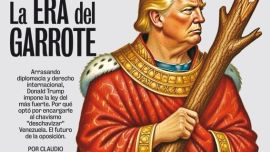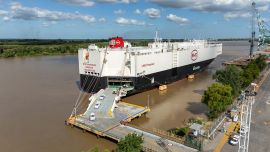The turmoil in Argentina and Hong Kong is prompting local investors to pay a premium for Bitcoin, with the leading cryptocurrency proving to be less of a refuge for everyone else than advertised.
In Argentina, where the peso plunged on election uncertainty, Bitcoin was recently trading for as much as US$12,000 on LocalBitcoins.com, a peer-to-peer platform, or 10 percent higher than on many international crypto exchanges. The token was trading at about a four-percent premium in Hong Kong, where continued anti-government protests are raising fears of retaliation.
“Bitcoin is becoming the asset of last resort in areas of extreme currency devaluation and political uncertainty," said Rayne Steinberg, chief executive officer at Los Angeles-based crypto hedge fund Arca. “In the last week alone, Bitcoin is up approximately 50 percent against the Argentine peso and trading at a significant premium on local exchanges. And they are not alone, joining the ranks of Venezuela, Hong Kong and Turkey who have also experienced similar shocks.”
The premiums would seem to support the argument that Bitcoin is a means of protecting assets from plunges in local currencies and authoritarianism. Even so, the cryptocurrency has tumbled about 8% to around US$10,890 this week, increasing the risk for investors in troubled nations of moving from one volatile asset to another.
In the past month many advocates have been pointing to the increased negative correlation with US equities as proof that investors were turning to Bitcoin as a haven. That narrative proved to unravel this week as the inverse relationship broke down.
Bitcoin remains volatile, more than doubling this year after tumbling 73% in 2018. For comparison, the Argentine peso is down 32 percent versus the dollar in 2019, according to data compiled by Bloomberg.
Argentines want to protect themselves against the peso losing value versus the dollar," Alex Kruger, a crypto trader, said in a Tweet yesterday. "And for that, they buy dollars."


















Comments